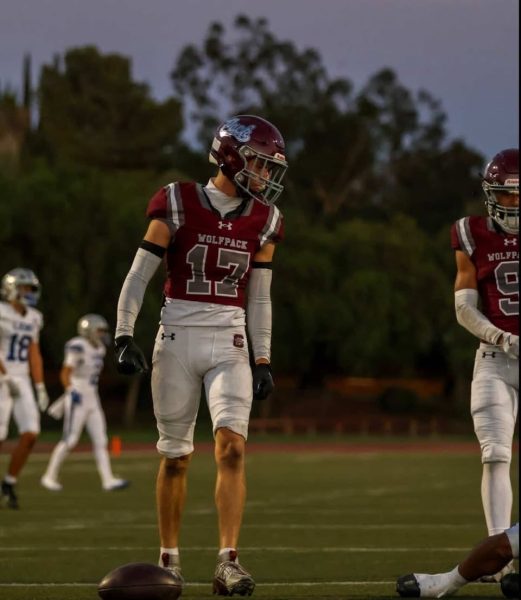Sports Injuries Q&A with Athletic Trainer Heather Pedevillano
Heather Pedevillano is the head athletic trainer here at CHS. Pedevillano is a certified athletic trainer and is in charge of all sports teams. She has been working at CHS since the fall of 2003.
Q: Is there a related reason why students are injured during games and practices or do you think they all occur for different reasons?
A: Student athletes get injured during practices and games on the daily for multiple reasons. Sometimes it can be due to improper warmups and cool-downs. They also sustain overuse injuries, which can be due to poor nutrition and hydration on extremely hot days. They can get heat illness and cramping, which can be an unfortunate case, which means that they are simply just in a high contact sport and that is just the nature of the game. There isn’t a clear-cut reason why athletes always get injured, but there are trends that we can take note of and hopefully prevent or limit the amount of athletic type injuries and illnesses.
Q: What are ways to prevent an accident or injury before, during, or after an event?
A: Being that this is a loaded question, best assume the athlete has no pre-existing conditions and injuries. Everything in the body has a purpose and reason of function. Best to say, to try to avoid and prevent as many overuse injuries as possible,
start preparing and acclimating your body before your actual season starts. Proper hydration, nutrition, mobility, and conditioning are a must. After an event, proper cool downs, mobilization, hydration, and nutrition are just as key. What you do today will indeed affect your body tomorrow. You must properly fuel to perform.
Q: Does the athletes “off time” while being injured really affect how they play once they are well again?
A: Depending on the injury it can greatly affect their athletic performance and return, or it can help them in a positive note and the time and rest off a small injury did their body good. A minor sprain and strain in the body, if rested properly, can heal and the person can return in a quicker manner than an athlete who sustained a significant muscle strain or even a dislocation and/or fracture. Time is a huge indication of how effectively an athlete can return to full participation. During weeks off of a sport, cardio diminishes first. For any longer, muscle fatigue and atrophy can occur, making it take longer to strengthen back up. You also have to factor in the fact that the longer an athlete is off for injury, the body alone isn’t the only thing you need to prepare to get back into practice and game ready. The mind and self confidence in oneself is just as pivotal in athletic return. If the athlete has mental hesitation, it is more likely they will sustain further injury to what is already hurt and/or can sustain a new injury as well. Hesitation of self can be more problematic than the actual physical injury in and of itself.
Hello there! Our goal is to provide relavent, engaging journalism for readers of all ages. Your donation will support the student journalists of the Wolfpacket at Claremont High School, and will allow us to purchase equipment, print our monthly issues, and enter in journalism competitions. We appreciate your consideration!

Ivana Estrada is a senior on the Wolfpacket staff as the assistant Sports editor. Estrada has been on staff since her freshman year and hopes to make her...




